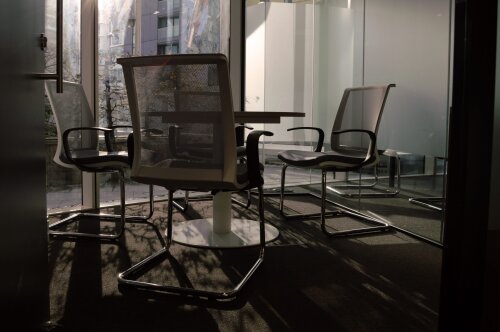Best Art & Cultural Property Law Lawyers in Egypt
Share your needs with us, get contacted by law firms.
Free. Takes 2 min.
Or refine your search by selecting a city:
List of the best lawyers in Egypt
About Art & Cultural Property Law in Egypt
Art & Cultural Property Law in Egypt is a specialized legal field that addresses the protection, preservation, and management of artworks, heritage sites, and cultural artifacts. Given Egypt's rich historical heritage, laws have been developed to safeguard its archaeological and cultural treasures. This legal domain encompasses matters related to the excavation, restoration, ownership, import, export, sale, and distribution of cultural property. Regulation in this area helps ensure that Egyptian cultural heritage is protected from illegal trafficking and misconduct.
Why You May Need a Lawyer
Individuals and organizations may require legal assistance in Art & Cultural Property Law in various situations. Common scenarios include:
- Ownership disputes over artifacts or artworks.
- Legal issues arising from excavation or archaeological research.
- Concerns regarding the import or export of cultural property.
- Litigation related to theft, unauthorized sale, or trafficking of cultural items.
- Obtaining permits for restoration or development projects involving heritage sites.
- Negotiations for loans or exhibitions of cultural property.
Due to the complexity and potential cultural sensitivity of these issues, seeking legal guidance from experienced professionals is often essential.
Local Laws Overview
Egyptian Art & Cultural Property Laws are comprehensive and include several key statutes:
- The Antiquities Protection Law No. 117 of 1983, which prohibits unauthorized possession, dealing, and export of antiquities.
- The law mandates that any discovered artifacts on Egyptian soil are the property of the state.
- Regulations governing archeology focus on permits for excavation and restoration, emphasizing the need for scientific and ethical compliance.
- Agreements on cultural property protection, including international conventions that Egypt is party to, aiming to combat the illicit trade of artifacts globally.
Understanding these laws and how they interlink with international regulations is crucial for effectively managing legal issues in this field.
Frequently Asked Questions
What is considered cultural property in Egypt?
Cultural property includes artifacts, historical and archaeological sites, artworks, manuscripts, and monuments that hold cultural, historical, or archaeological significance.
Can I privately own cultural artifacts in Egypt?
No, under the Antiquities Protection Law, cultural artifacts are considered state property, and private ownership is not allowed unless specifically permitted by law.
What are the penalties for illegal trafficking of cultural property?
Penalties can include hefty fines, imprisonment, and the confiscation of any illegally obtained property.
Are there legal consequences for unauthorized excavation or archeological research?
Yes, conducting unauthorized excavation or participating in unlicensed archaeological research can result in severe penalties, including legal prosecution and custody.
How can I legally export artworks from Egypt?
Exporting artworks legally requires permits from relevant authorities and compliance with both local and international regulations. The Ministry of Antiquities typically handles such affairs.
What should I do if I discover an ancient artifact on my property?
Report the finding to local authorities immediately, as failure to do so can lead to legal consequences. The state might undertake custody and preservation efforts.
Do museums need specific permits for exhibitions of foreign artifacts?
Yes, museums must arrange permissions through the Ministry of Antiquities and adhere to international borrowing agreements for foreign exhibitions.
Is it possible to challenge the state's claim over a cultural artifact?
Generally, objects designated as cultural property by the state law are non-negotiable. However, legal counsel can be sought to discuss specific circumstances.
How are archaeological sites protected from modern development?
Protection is achieved through legal designations, mandatory evaluations, and permitting processes that assess impact and enforce conservation priorities.
What role do international conventions play in Egyptian Cultural Property Law?
International conventions, like the UNESCO Convention, support Egypt in regulating and advocating for heritage protection on an international stage.
Additional Resources
For more information on Art & Cultural Property Law in Egypt, consider consulting the following:
- Egypt's Ministry of Tourism and Antiquities for official guidance and permits.
- The Egyptian Society for Cultural Property Protection for community advice and advocacy.
- UNESCO’s resources on international conventions for cultural protection.
- Research articles and legal journals focused on cultural property law.
Next Steps
If you require legal assistance in Art & Cultural Property Law in Egypt, consider the following steps:
- Identify the specific legal issue or concern related to cultural property.
- Research and select a qualified lawyer or law firm with expertise in Art & Cultural Property Law.
- Gather necessary documents and information pertinent to your case.
- Schedule a consultation to discuss your situation and understand your legal rights and obligations.
- Follow your lawyer’s advice and maintain good communication throughout the legal process.
Proactively engaging with experienced legal professionals will help safeguard your interests and ensure adherence to Egypt’s cultural property laws.
Lawzana helps you find the best lawyers and law firms in Egypt through a curated and pre-screened list of qualified legal professionals. Our platform offers rankings and detailed profiles of attorneys and law firms, allowing you to compare based on practice areas, including Art & Cultural Property Law, experience, and client feedback.
Each profile includes a description of the firm's areas of practice, client reviews, team members and partners, year of establishment, spoken languages, office locations, contact information, social media presence, and any published articles or resources. Most firms on our platform speak English and are experienced in both local and international legal matters.
Get a quote from top-rated law firms in Egypt — quickly, securely, and without unnecessary hassle.
Disclaimer:
The information provided on this page is for general informational purposes only and does not constitute legal advice. While we strive to ensure the accuracy and relevance of the content, legal information may change over time, and interpretations of the law can vary. You should always consult with a qualified legal professional for advice specific to your situation.
We disclaim all liability for actions taken or not taken based on the content of this page. If you believe any information is incorrect or outdated, please contact us, and we will review and update it where appropriate.
Browse art & cultural property law law firms by city in Egypt
Refine your search by selecting a city.















